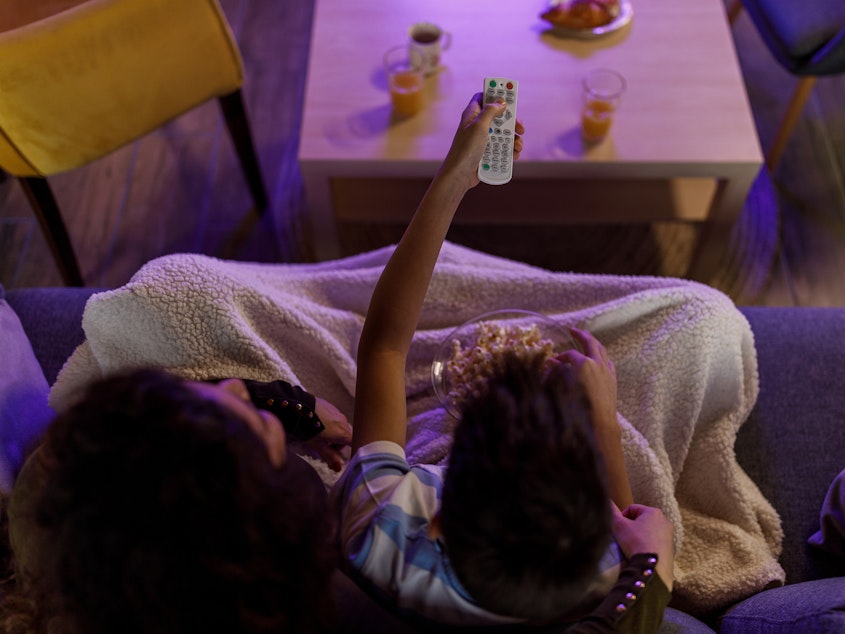Looking for 'nomance': Study finds teens want less sex in their TV and movies

A new study about young Americans' entertainment consumption habits shows that Generation Z is far more interested in seeing stories of platonic relationships on screen than those featuring sex and romance.
More than half of the 1,500 young people who participated in the University of California Los Angeles's (UCLA) Center for Scholars and Storytellers "Teens and Screens" survey said they want to see more content focused on friendships. Nearly 40% said they particularly want to see more non-romantic relationships or asexual characters on screen. The majority of respondents said they felt that romance in media is overused. (The study in its entirety included youth aged 10-24, but questions relating specifically to sex and romance on screen were only asked of a subset aged 13-24.)
The research team is labeling this trend as "nomance."
"When there's media with too much sex, me and my friends often feel uncomfortable," said survey respondent Ana, age 16, in a video released by UCLA to accompany the study.
"My friends are I maybe awkwardly bear through it," said 20-year-old respondent Joseph.
Sponsored
The research team said Gen Z's chaste entertainment preferences stem from a craving for feel-good character relationships following the isolation of the pandemic years.
"Young people are feeling a lack of close friendships, a separation from their community, and a sense that their digital citizen identity has superseded their sense of belonging in the real world," wrote researchers Stephanie Rivas-Lara and Hiral Kotecha in an essay expanding on the survey results.
"The core essence of kids and teens will always be the same – from camaraderie to curiosity and a sense of adventure – and it appears that somewhere along the way, this may have been forgotten in storytelling."
The UCLA research team did not ask the surveyed youth if they sought out sexual or pornographic content outside the realm of TV, movies and social media.
"It's not that young people aren't interested in TV, movies and other media with sexual content, it's that they want to see more and different types of relationships," said UCLA Center for Scholars and Storytellers founder Yalda Uhls. "We did not specifically ask about porn so I couldn't say for sure. But one theory could be that the prevalence of porn could be a reason why they feel they want to see less sexual content in traditional media." [Copyright 2023 NPR]



